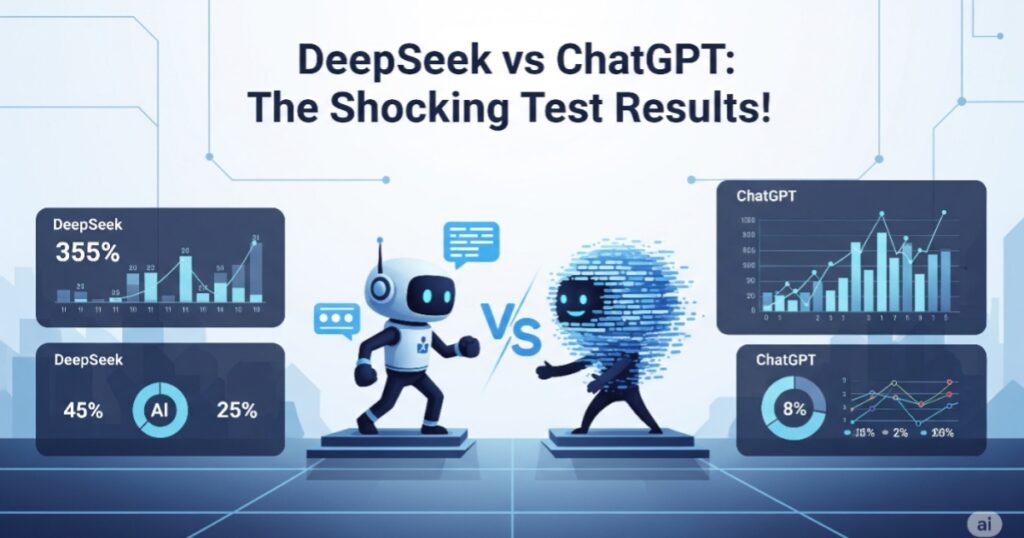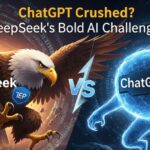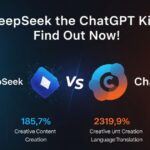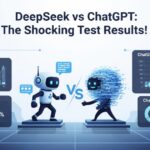The world of chatbots has just undergone a massive transformation—one that’s rewriting the rules of what artificial intelligence can truly do.
If you thought AI chatbots were limited to simple questions and generic responses, think again. The rise of next-gen models like DeepSeek and ChatGPT has pushed the boundaries, and now, the bar is higher than ever.
In recent months, the long-standing dominance of ChatGPT—developed by OpenAI—has been challenged in a big way.
Enter DeepSeek, a powerful, open-source AI model that’s quickly becoming one of the most talked-about names in tech. What was once a space ruled by a single player is now a thrilling race of innovation, performance, and user preference.
The showdown between DeepSeek vs ChatGPT is more than just about which model responds better—it’s about how AI itself is evolving. ChatGPT has built a reputation for being remarkably fluent, creative, and versatile.
From writing stories and solving math problems to assisting with code and creating visual content through integrations like DALL·E, it’s a true all-in-one assistant.
But DeepSeek has disrupted the narrative by excelling in areas where ChatGPT hasn’t always dominated—such as factual accuracy, structured data output, multilingual content processing, and transparent citations. It’s being praised by researchers, developers, and educators who need high-precision answers in less flashy, more function-driven formats.
“I ran a detailed legal question through both,” says Alicia Moore, a legal tech analyst in Boston. “ChatGPT gave me a well-worded summary. DeepSeek, however, provided case references, legal clauses, and formatting that I could actually use. That was a first for me.”
This is where the DeepSeek vs ChatGPT comparison gets interesting. ChatGPT continues to lead in creative writing and ease of use, particularly for general users, marketers, and content creators.
Meanwhile, DeepSeek’s appeal lies in its raw technical performance and open framework, which allows for custom training and integration in enterprise systems.
As more people gain access to both models, the chatbot conversation is shifting. It’s no longer just about which AI feels more human—it’s about which one delivers the most reliable results for specific needs.
Search interest in terms like “best chatbot for business,” “ChatGPT alternative,” and “DeepSeek AI review” has skyrocketed, proving that the public is hungry for AI tools that go beyond just conversation.
Industry experts believe this competition will only push both platforms to improve. ChatGPT is already rolling out advanced memory features and real-time browsing, while DeepSeek’s development team is focused on expanding its multilingual capabilities and developer tools.
One thing is clear: everything you thought you knew about chatbots is changing. The DeepSeek vs ChatGPT battle isn’t just breaking tech headlines—it’s redefining how we use and trust AI in our daily lives.
The future of chatbots isn’t coming—it’s already here.







